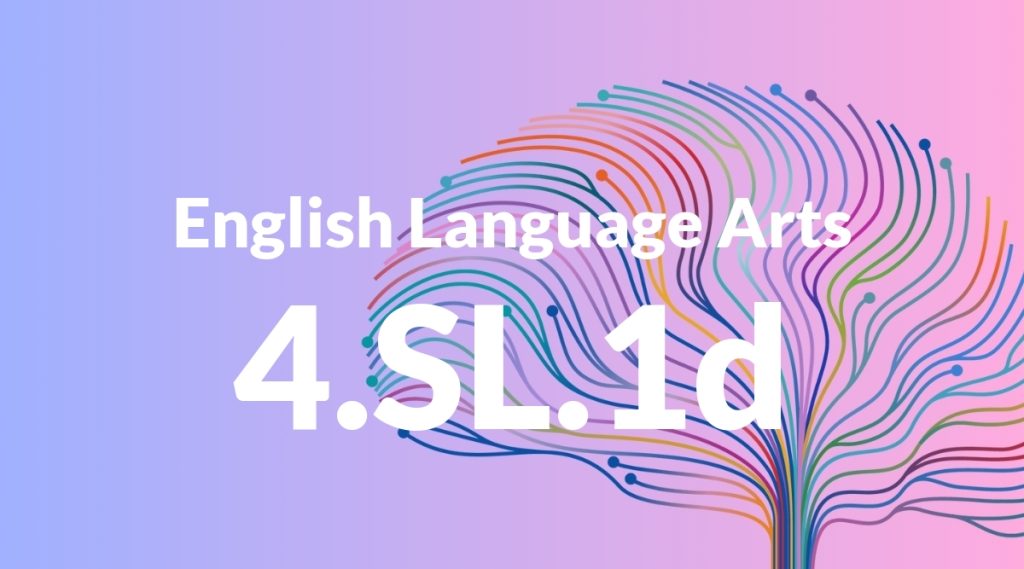Standard: 4.SL.1d – Review the key ideas expressed and explain their own ideas and understanding in light of the discussion.
Grade level: Grade 4
Subject: English Language Arts
Domain: Speaking & Listening
Teacher Overview
This standard emphasizes the importance of students being able to review key ideas from discussions and articulate their own ideas in response. It’s crucial for developing critical thinking and communication skills, which are foundational for success in both academic and real-world settings. Students should have basic listening skills and the ability to follow discussion rules. They should also be able to express their thoughts clearly.
Mastering this standard will prepare students to engage in more complex discussions, critically evaluate different viewpoints, and articulate their ideas confidently in various contexts.
Common Misconception 1
A common misconception is that students might undervalue their own contributions, thinking their ideas are less important than their peers’. This can hinder their participation and confidence in discussions.
Intervention 1
Create a classroom culture where every student’s voice is valued. Use activities that require each student to share their thoughts, and provide positive reinforcement for their contributions.
Common Misconception 2
Another misconception is that students might prioritize agreement over expressing their own ideas. They might believe that disagreeing is negative or confrontational.
Intervention 2
Introduce activities that encourage respectful debate and show that differing opinions can enhance understanding. Teach students how to express disagreement constructively.
Prerequisite Knowledge
Students should be able to listen attentively, understand basic discussion rules, and express their thoughts in a clear and coherent manner.
Subsequent Knowledge
Students will develop advanced communication skills, including the ability to critically evaluate others’ ideas and build on them, and effectively articulate their own viewpoints in various settings.
Instructional Activities
- Role-playing discussions on various topics
- Group projects with peer feedback
- Class debates on current events
- Book club discussions
- Family discussion prompts for home practice




